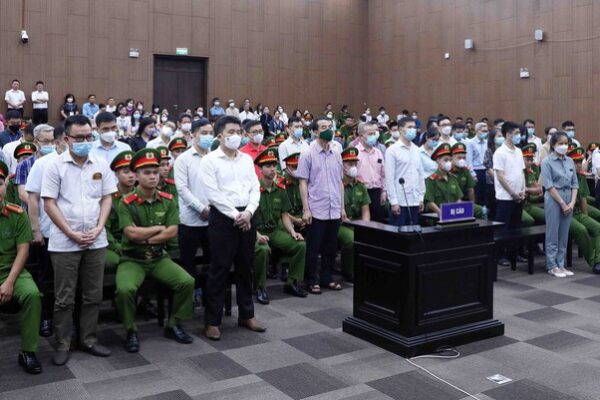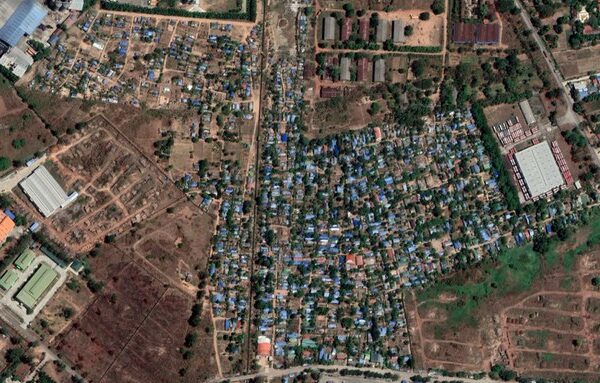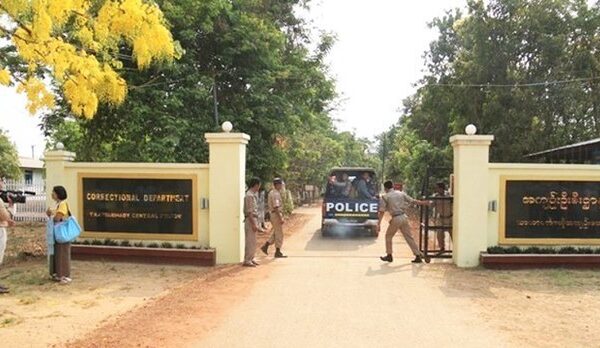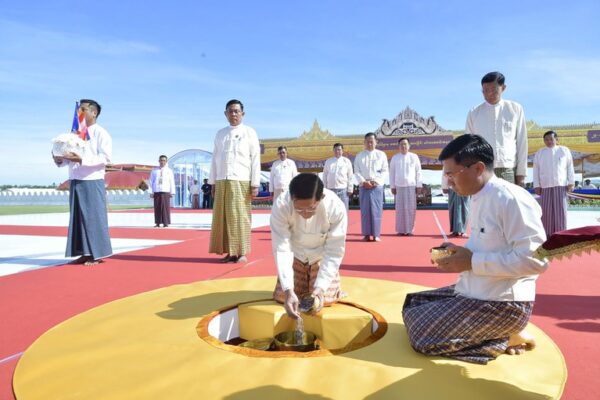
Plenty of blame to go around in Vietnam’s COVID repatriation flight bribery scandal
Following a two-week trial, a Hanoi court last month convicted 54 defendants, including senior diplomats, for collecting over $7.4 billion in bribes to arrange government flights home for Vietnamese citizens stranded overseas during COVID pandemic lockdowns. The COVID-19 repatriation flight scandal is not Vietnam’s largest corruption case in monetary terms, but it involved 25 officials from five different ministries, and the country’s tightly controlled state media were given relatively free rein to cover a case that captured public attention and affected many citizens. Nearly 200,000 Vietnamese are reported to have returned on some 1,000 Vietnamese government-organized charter flights from 62 countries during the 2020-21 peak of the pandemic. The scandal toppled three Vietnamese ambassadors and other diplomats for skimming from repatriation funds. In the July 28 sentencing of 54 people, four officials received life sentences, while 45 officials and businesspeople were jailed for between16 months and 20 years. Prosecutors had sought the death penalty for one official, but the courts held back. Of defendants, 21 were charged with receiving bribes, 24 for giving bribes, and the remainder for abuse of power, brokering bribes, or fraud. The 24 businessmen and women spoke in court about Vietnam’s “envelope culture”. Prosecutors described a “well-oiled” system put in place for companies that sought government contracts, with amounts correlated to the number of flights and repatriates. Tarnished diplomats There are six takeaways from the case that prosecutors said showed “extremely dangerous levels of corruption” that “betrayed the efforts of the whole country.” First, the Ministry of Foreign Affairs (MFA) is now tarnished in the eyes of the public. Thirteen of the 54 convicts – almost a quarter – were from the MFA, which prides itself on being a very small and elite institution. Vietnam’s diplomats are usually highly regarded. Yet the case displayed tawdry corruption, historically more common in other ministries. In a time of crisis, these diplomats preyed on common overseas workers whose remittances play a key role in supporting the home economy, and they did so in a crisis when people were desperate. The media were filled with stories of people who missed the deaths of parents and other cases of loss that resonated with the public. Four people in the embassy in Malaysia alone received 10 billion dong ($423,000) in bribes. Defendants [front row, standing] appear in court for the repatriation flight trial in Hanoi, Vietnam, July 11, 2023. Credit: Vietnam News Agency/AFP The scandal brought down a deputy foreign minister, To Anh Dung, who was found guilty of accepting 21.5 billion dong ($908,000), as well as ambassadors to Japan, Malaysia, and Angola, and the consul general in Osaka. In addition, the head of the consular affairs office, Nguyen Thi Huong Lan, received a life sentence for receiving 25 billion ($1.06 million). She refused to admit that they were bribes, but rather “thank you gifts” from companies that she took “out of respect.” Repayment brings clemency Second, the Supreme Court determined that repayment of three-fourths of the pilfered funds would make defendants eligible for a degree of clemency. For example, prosecutors had sought the death penalty for a secretary of a deputy minister of health, but upon repayment of the full 42 billion dong ($1.8 million), the court handed him a life sentence, saying “There is no need to remove from society.” While it’s important for the government to recoup the proceeds of crime and ensure that people do not benefit from corruption, the ruling also creates a sense that justice can be bought. Local media raised the question of whether filling state coffers was more important than punishing people who extorted bribes from citizens during the pandemic. Third, only three senior officials of Vietnam’s Ministry of Public Security were found guilty, a figure that looks inexplicably small given the ministry’s reach. MPS investigators were focused on Vu Anh Tuan, the former head of the immigration management department, and seemed keen to close ranks and redirect the investigations outward. Vietnamese nationals wearing protective suits are seen aboard a repatriation flight from Singapore to Vietnam, Aug. 7, 2020. Credit: Mai Nguyen/Reuters But one defendant received considerable media scrutiny. Hoang Van Hung was in charge of Department 5 of the MPS Investigation Security Agency, the office that was investigating the businesses that paid the bribes, tipping them off in return for his own illicit payments. Though caught on video receiving a briefcase that prosecutors alleged contained $450,000, the former MPS investigator was defiant, claiming that the attaché held four bottles of wine. He denied meeting anyone under investigation despite significant evidence. Prosecutors noted that given his position, he knew all the steps to take to cover his tracks, including relying on burner phones. His defiance throughout the trial reminded people that the people charged with investigating corruption tend to be tainted by it the most. His sentence was longer than prosecutors had asked for. Health ministry graft Fourth, the trial served up another reminder that corruption is endemic in the Vietnamese Ministry of Health. The secretary of a deputy minister of health, Pham Trung Kien, was caught taking some 253 separate bribes within a year. In addition to this scandal, the ministry was also rocked by the Viet A test kit scandal, and in a separate corruption case in July, a Ho Chi Minh City businessman was accused of selling $3.2 million in non-resistant latex gloves. The investigations into so many senior level ministry officials have had real impacts on the healthcare sector. So scared of being caught up in a corruption investigation, no one was willing to sign off on imports of key medicines, leaving serious shortages in early 2023 and causing the delays of thousands of surgeries. Healthcare workers spray disinfectant on Vietnamese nationals after their repatriation flight from Singapore landed at Can Tho airport, Vietnam, Aug. 7, 2020. Credit: Mai Nguyen/Reuters Fifth, Vietnamese analysts that I spoke to noted that there was a distinct difference in levels of contrition. The older figures who had been in the system for years…





